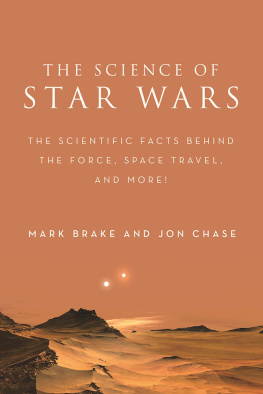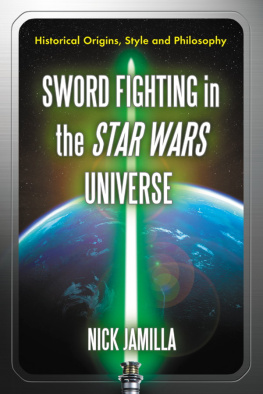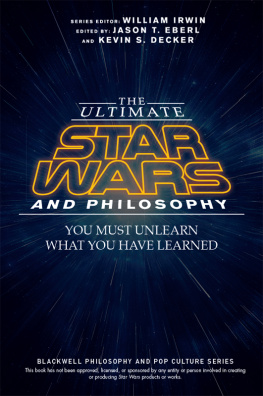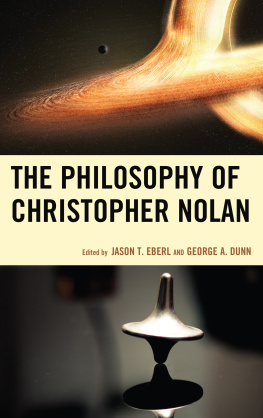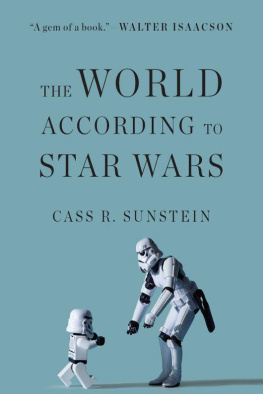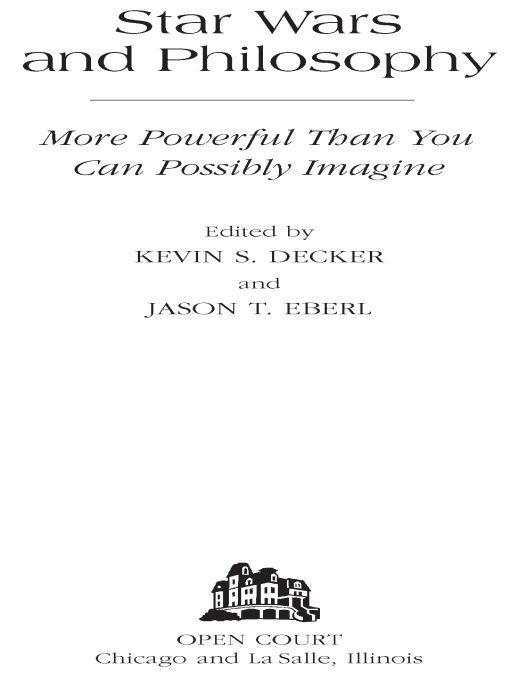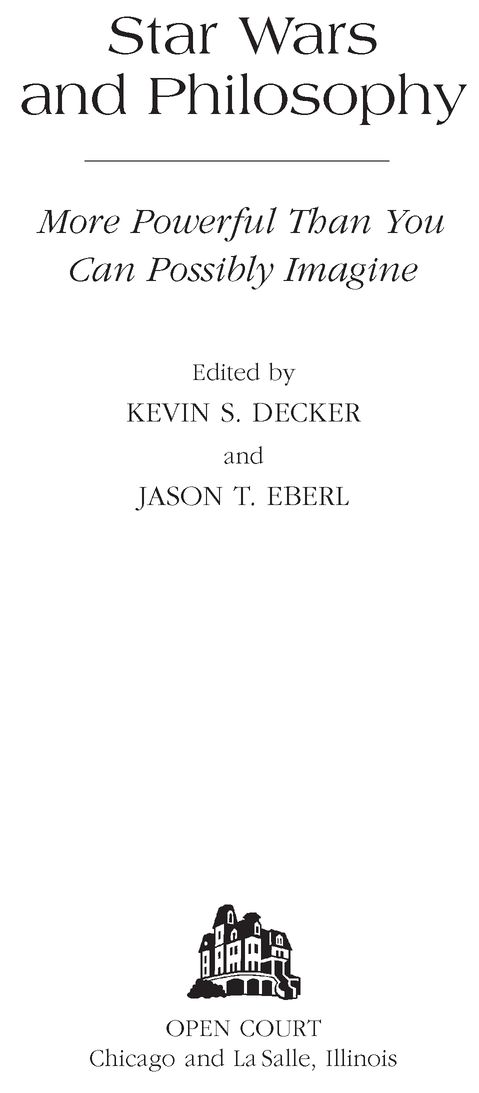Table of Contents
Popular Culture and Philosophy Series Editor: William Irwin
VOLUME 1
Seinfeld and Philosophy: A Book about Everything and Nothing (2000)
Edited by William Irwin
VOLUME 2
The Simpsons and Philosophy: The Doh! of Homer (2001)
Edited by William Irwin, Mark T. Conard, and Aeon J. Skoble
VOLUME 3
The Matrix and Philosophy: Welcome to the Desert of the Real (2002)
Edited by William Irwin
VOLUME 4
Buffy the Vampire Slayer and Philosophy: Fear and Trembling in Sunnydale (2003)
Edited by James South
VOLUME 5
The Lord of the Rings and Philosophy: One Book to Rule Them All (2003)
Edited by Gregory Bassham and Eric Bronson
VOLUME 6
Baseball and Philosophy: Thinking Outside the Batters Box (2004)
Edited by Eric Bronson
VOLUME 7
The Sopranos and Philosophy: I Kill Therefore I Am (2004)
Edited by Richard Greene and Peter Vernezze
VOLUME 8
Woody Allen and Philosophy: You Mean My Whole Fallacy Is Wrong? (2004)
Edited by Mark T. Conard and Aeon J. Skoble
VOLUME 9
Harry Potter and Philosophy: If Aristotle Ran Hogwarts (2004)
Edited by David Baggett and Shawn E. Klein
VOLUME 10
Mel Gibsons Passion and Philosophy: The Cross, the Questions, the Controversy (2004)
Edited by Jorge J.E. Gracia
VOLUME 11
More Matrix and Philosophy: Revolutions and Reloaded Decoded (2005)
Edited by William Irwin
VOLUME 12
Star Wars and Philosophy (2005)
Edited by Kevin S. Decker and Jason T. Eberl
IN PREPARATION:
Superheroes and Philosophy (2005)
Edited by Tom Morris and Matt Morris
The Atkins Diet and Philosophy (2005)
Edited by Lisa Heldke, Kerri Mommer, and Cindy Pineo
The Chronicles of Narnia and Philosophy (2005)
Edited by Gregory Bassham and Jerry Walls
Hip-Hop and Philosophy (2005)
Edited by Derrick Darby and Tommie Shelby
To Suzanne and Jennifer, Youre the brains, sweethearts!
Heroes of Rogue Squadron
It takes three years to make a Star Wars movie, from script to screen. Fortunately, it didnt take nearly as long to put this volume together, and the credit for that achievement goes to a number of persons. First of all, our contributors, who raced full-throttle down the Death Star trench of writing and editing to score bulls-eyes with the chapters they produced. Next, of course, are the good people at Open Court who saw the Force-potential in our proposal and supported us all the way: David Ramsay Steele, Carolyn Madia-Gray, and Grand Master Bill Irwin.
As the volume progressed, a number of colleagues and friends took time from their bounty-hunter training seminars to review drafts of various chapters or influenced the volume in myriad other ways: Dave Baggett, Susan Bart, Greg Bassham, Gregory Bucher, Seetha Burtner, Donald Crosby, Keith Decker, Mario Intino, Jr., Jennifer Kwon, Chris Pliatska, William Rowe, Scott Rubarth, Charlene Haddock Siegfried, James South, Kevin Timpe, C. Joseph Tyson, and Wayne Viney. An extra special thank you goes to Carlea Alfieri and Andrew Clyde for reading and offering their insights on each chapter as it neared completion.
Obviously, our families, including the secret twin sisters we dont know about yet, deserve a great deal of credit for their inspiration and patience with our other life in that galaxy far, far away. We dedicate this opus to our wives Suzanne and Jennifer, and wish to express our love and devotion to our children Kennedy, Ethan, Jack, and August, through whose eyes we see the Star Wars saga and life itself in whole new ways.
The Force Is with You... but Youre Not a Jedi Yet
Now this may shock you, but theres an arcane, little-known quotation, one rich in meaning, that appears in every Star Wars movie: Ive got a bad feeling about this. In each episode of George Lucass space opera, one of the main characters expresses this basic existential anxiety.
But philosophy doesnt have a monopoly on wonder or doubt. You could be in a state of wonder reflecting upon the birth of your twin children, or while viewing the new piece of art on your favorite Hutts wall. Similarly, you could be in doubt whether the modifications to your podracer are sufficient to allow you to be competitive in the Boonta Eve Race. In these cases, no philosophical questioning needs to occur. Philosophy begins with wonder but leads to thinking. The need to think things through, to change our mind and our environment, arises only because we get into sticky situations. Simple problems disclose their solutions almost immediately, like young Anakins uncanny ability to fix machines. More difficult ones require us to search among alternatives for a solution: Should Obi-Wan tell Luke the truth about his father from the start or wait until he matures? Should Qui-Gon use Jedi mind tricks on Boss Nass to secure transport from the Gungan city? Philosophical problems are often distinguished by the fact that the problem itself is unclearwe need to settle certain things about the world and ourselves, sometimes at the deepest levels, before we can blow this thing and go home.
Now Star Wars doesnt wear its philosophy on its sleeveit doesnt make clever allusions to Alice in Wonderland or the Kabbalah in an effort to jump-start the mind of the average viewer. Although these movies are primarily vehicles for action scenes and fantasy themes, they still involve characters reaching out and deeply within to solve problems that are significantly larger than themselves. In Star Wars, conflict is a constant, but its not fighting in the wars of the title that spurs the development of the main characters personalitiesafter all, wars not make one great. Instead, its the struggle to understand and overcome deep problems of identity, truth, freedom, and the tragic side of life that defines the rise, fall, and rise again of the Skywalker family and the impact they have on allies and enemies alike.
Essentially, the
Star Wars movies tell a simple story of tragedy, courage, and redemption. But under this simple guise the ageless questions of philosophymany of which are examined in this bookderive new meaning when held against the background of its plot, colorful situations, and memorable characters. For example:
Are the virtues good because they are appreciated by the Jedi, or are they appreciated by the Jedi because they are good? (Plato)
Is Yoda a Jedi Master so great that a greater one cant be conceived of? (Anselm)
Can Anakin commit himself as a chaste, unattached Jedi Knight, but just not yet? (Augustine)
As absolute ruler of a galaxy-wide Empire, is it better to be loved or feared? (Machiavelli)
Am I a mind, a body, or an overweight glob of grease? (Descartes)
How do we know the sun will rise on Alderaan tomorrow, even if it has done so every day since the beginning of time? (Hume)
If Vader looks into the abyss, doesnt the abyss also look back into him? (Nietzsche)



